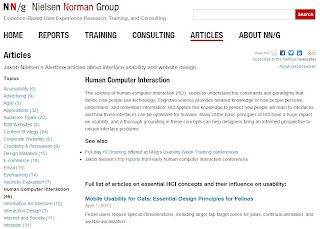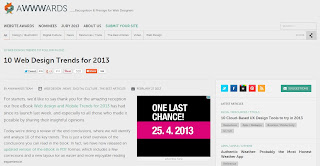If you are a web designer, it is highly probable you found yourself in specific stalemate situation, in more than one occasion.
For start, let suppose your client provided you with detailed info of what his new, awesome, spectacular, web site needs to achieve. (Yes it happens sometimes.)
So you bury yourself in statistics, psychology, UX studies etc….
(For your personal amusement, check out a nice “little” collection of studies by Nielsen Norman Group, at www.nngroup.com/topic/human-computer-interaction/.)

nn group
And after days of research and experiments you come up with design that will meet client’s demands just perfectly, right? Well…
Your client might be big company which appointed their marketing experts to cooperate with you in designing that pages. Through the dialogue, you’ll get to the final solution, no problem.
Your client might be a small business owner who is aware of his knowledge and he entrusted the design to you completely, not bad also, of course.
But what if your client thinks he did his own homework, if he saw couple of web sites of his most fearsome business rivals? Worse yet, their pages are flashy masterpieces made in 2004… Never mind, typography, paragraphs width’s, trendy-schmendy… he wants to beat that epileptic trigger with his own weapon.
Suddenly you are at a crossroad, make a stand or make something that will make every bit of your brain scream against. Lose your client, or lose your integrity? Answer to that question depends on many factors, and in principle, it’s a subjective matter, but no need to make radical decision. Well, at least, not yet.
Try subtle approach at first. Sum all advantages of your design. Then translate it to short, direct, geek free sentences, (e.g. “SEO friendly” = “easier to find”), and write it down. Do the same with client’s proposition disadvantages too, (e.g. “That font tends to pixelate at smaller ppi” = “Text won’t look nice on most of the screens”). Now present that nice little essay to your client, and see what will happens.
The point is, although your client might not share your level of knowledge when it comes to web technologies (and of course, he don’t need to), it is highly likely he possess common sense. If you prepared your arguments, pros and cons, right, chances he’ll listen aren’t small.
As a last resort you can try persuade him to read that Nielsen-Norman research papers I mentioned earlier, or look at 10-web-design-trends-for-2013.html, but somehow I don’t think it will happen.

2013 trends
Client is a person who gives you his trust, and his money, thus, he is a person who deserves your respect. You, on the other hand, are giving him best of your knowledge and time. If you do your job ethically and professionally, there is no reason not to respect yourself. Fulfill these two conditions, and there is a big chance you’ll achieve mutual understanding.
And if you don’t, its not that tragic either. Stand up for yourself might not be always profitable but you’ll sleep much nicer, believe me.
No comments:
Post a Comment